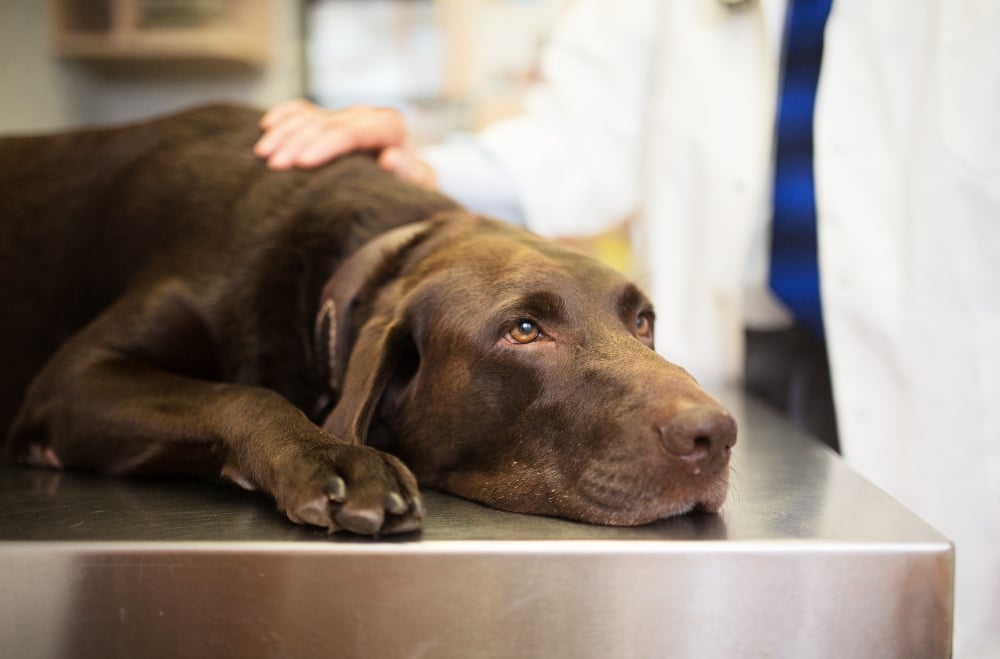Table of Contents
Recently there have been reports of deadly side effects of certain flea and tick medications. While all drugs come with side effects, some side effects reported as a result of taking flea and tick medications have been more severe. Most dogs and cats do not have notable reactions to flea and tick medications. If you are trying a new flea and tick medication for the first time, it is best to monitor your dog that day for any reactions.
Symptoms of Reactions
Tick preventives can cause mild symptoms, such as itching and scratching, or they can be more moderate such as excessive salivation, vomiting, and diarrhea. Severe symptoms include seizures and even death. If your dog has any of these side effects shortly after receiving flea and tick medication, it is best to see your veterinarian. These side effects can also be signs of other potentially more serious problems.
Neurological Problems
A recent statement put out by the American Veterinary Medical Association (AVMA), reports that flea and tick medications in the isoxazoline class have been shown to cause seizures in dogs. This class of drugs includes Bravecto, Credelio, Nexgard, and Simparica.
These medications can lower the seizure threshold in the dog, which causes a dog who has seizures to have more seizures or a dog who has never had a seizure before start having seizures. All these flea and tick medications should be avoided in dogs with seizures.
The only approved drug in the class for use in cats is Bravecto. Currently, there has been little to no evidence that this drug causes neurological problems in cats.
Gastrointestinal Problems
Some flea and tick medications can cause gastrointestinal upset, leading to vomiting and diarrhea. Usually, these problems go away after just a day. If every time you give your dog oral flea and tick medication, they start vomiting and having diarrhea, use topical medications instead.
The Dangers of Dog Flea for Cats
Most topical flea and tick medications for dogs contain permethrins. These are usually not toxic to a dog, but just a small amount on your cat can cause neurological problems. You should never use flea and tick medication intended for dogs on a cat. If your cat does get some of this medication on them, you will notice neurological signs very quickly. It is best to bathe this medication off your cat with dishwashing soap and take your cat to your veterinarian immediately. If caught early and your cat has only received a small amount of the drug, then they do have the potential to return to normal. Sadly, most permethrin toxicities are usually deadly.
Alternative Preventatives
If your dog does have a history of seizures, it is advised to use different flea and tick medications than those mentioned above. Topical medications such as Advantage, Vectra, Revolution, or Frontline are good choices. Some dogs may have a localized reaction to topical medications. For dogs with reactions to both oral and topical medications, veterinarians recommend flea and tick collars. The Seresto collar is one of the more recent flea and tick collars to hit the market.
For most pets, flea and tick preventions are safe and effective. Many veterinarians will say that the risk of catching a disease from a flea or tick is much higher than the potential risk of the medication, which is why most vets recommend using flea and tick preventatives.
By monitoring your pet after receiving flea and tick medication, you can catch the symptoms of a reaction sooner than later. If your dog has a history of seizures, it is best to have a conversation with your vet about which flea and tick medications are safe for your dog.
The content is not intended to be a substitute for professional veterinarian advice, diagnosis, or treatment. Always seek the advice of your veterinarian or other qualified health provider with any questions you may have regarding a medical diagnosis, condition, or treatment options.
Sara Ochoa, DVM is a small animal veterinarian in Whitehouse TX. In her free time, she likes to travel the world with her husband Greg, bake yummy desserts and spend time with her 4-legged fur kids, a dog Ruby, a cat Oliver James “OJ”, and a tortoise Monkey-Man.








